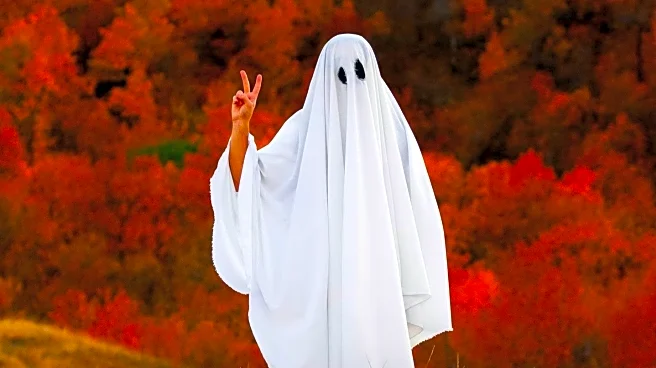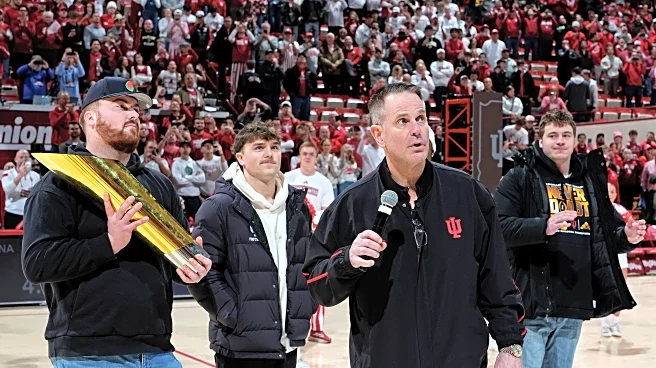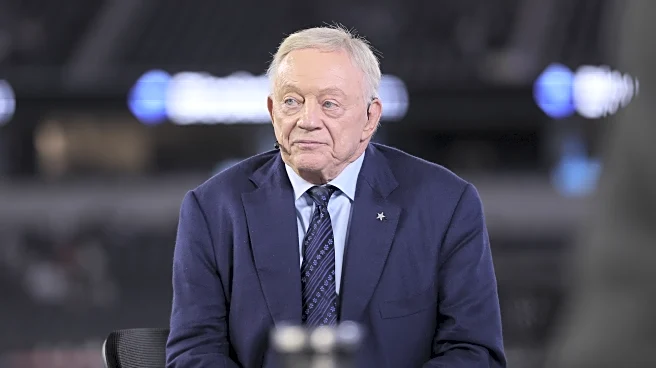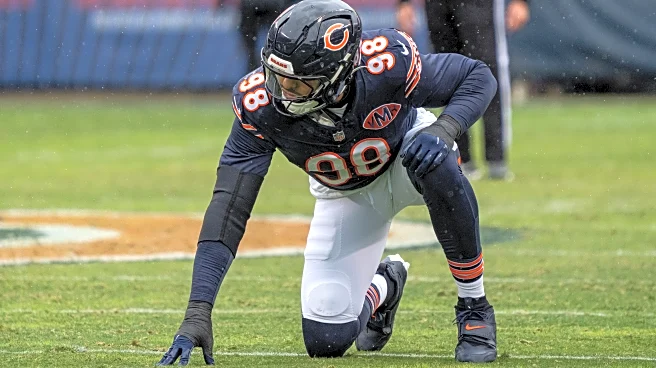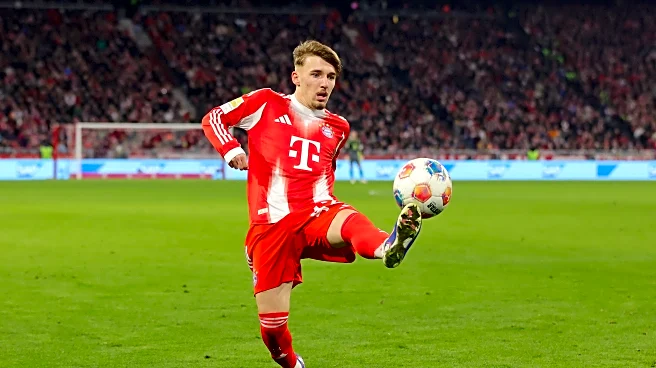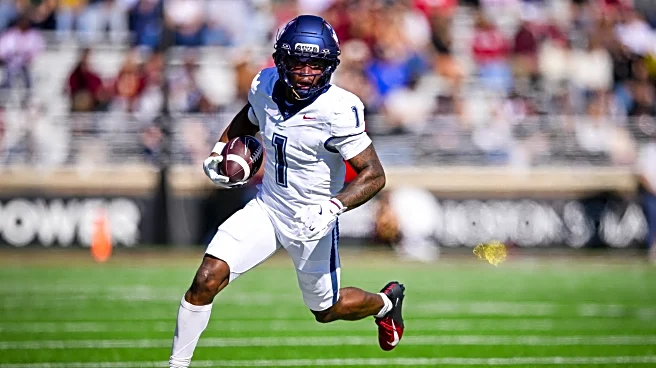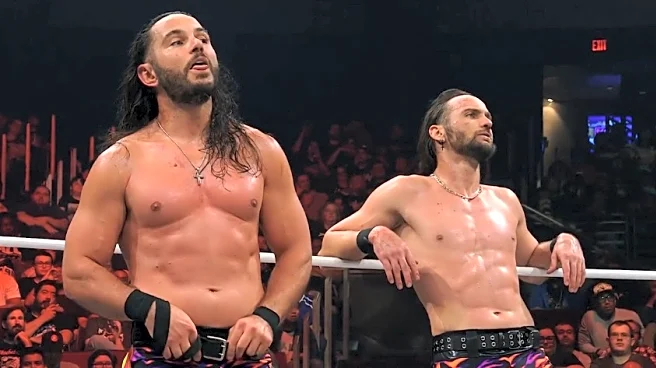What's Happening?
As Halloween approaches, adults are gearing up to celebrate with costumes inspired by 2025's pop culture moments and viral events. According to survey data from the Halloween & Costume Association, 51% of adults plan to wear costumes, with millennials and Generation Z leading the charge. Popular costume choices this year include characters from movies and TV shows such as 'KPop Demon Hunters,' 'Wicked: For Good,' and 'Fantastic Four: First Steps.' Additionally, viral moments like the 'Phillies Karen' incident and the engagement of Taylor Swift and Travis Kelce are influencing costume trends. Retailers like Spirit Halloween and Target are offering a variety of costumes based on these themes, with prices ranging from $42 to $100.
Why It's Important?
The popularity of these costumes reflects the significant impact of pop culture and social media on consumer behavior and trends. As adults increasingly participate in Halloween festivities, retailers and brands are capitalizing on this demand by offering themed costumes that resonate with current events and entertainment. This trend highlights the growing influence of viral moments and celebrity culture on fashion and consumer choices. It also underscores the role of social media in shaping public interest and driving sales in the costume industry.
What's Next?
With Halloween falling on a Friday this year, many adults are expected to participate in celebrations without the constraints of work or school. Retailers will likely continue to promote these popular costumes as the holiday approaches, potentially leading to increased sales and engagement. As new pop culture moments and viral events emerge, they may further influence costume trends and consumer preferences. Additionally, the success of these themed costumes could encourage retailers to expand their offerings in future years, catering to the evolving interests of consumers.
Beyond the Headlines
The trend of adults embracing Halloween costumes inspired by pop culture and viral events may have broader implications for the entertainment industry. As consumers seek to express their fandom and connect with cultural moments, there could be increased demand for merchandise and experiences related to popular media. This phenomenon also highlights the intersection of fashion, entertainment, and social media, as individuals use costumes to engage with and celebrate cultural narratives. Furthermore, the emphasis on creativity and personalization in costume choices reflects a shift towards more individualized expressions of identity and fandom.
